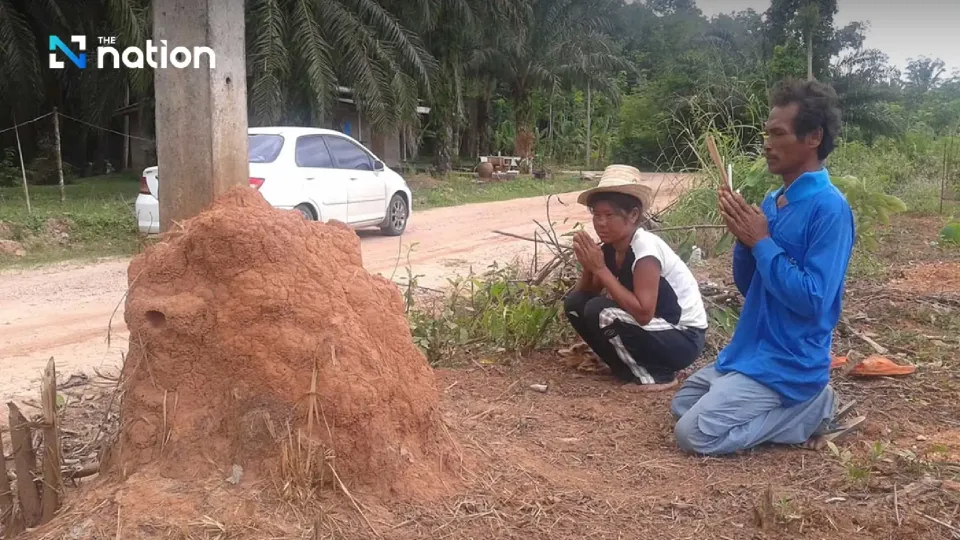November 19, 2025
BANGKOK – One such example is the humble termite, a tiny wood-munching insect that, for centuries, has been considered a symbol of good luck and prosperity in Thai culture.
But what’s the story behind this fascinating belief? And why are termite mounds, known as จอมปลวก (Chom Pluak), seen as sacred messages from the Earth Goddess herself?
Termites may not seem like the most glamorous creatures at first glance. Often seen as pests for their ability to destroy wooden structures, these insects have a deeper significance in Thai folklore.
Historically, people believed termites were connected to spiritual forces, with their nests acting as symbols of wealth and prosperity. The idea that tiny insects working silently beneath the surface could bring blessings was an interesting fusion of nature and belief.
The most striking feature of a termite’s presence in Thailand is the จอมปลวก(Chom Pluak), or termite mound. These impressive structures, made of soil, saliva, and wood particles, can reach towering heights in the forests and fields of rural Thailand. Far from being dismissed as simple insect homes, these mounds were once regarded as powerful, sacred markers.
People believed the mounds were messages from Phra Mae Thorani, the Earth Goddess in Thai mythology, who was thought to protect the land and bring abundance to the people who respected her.
The belief in the spiritual significance of termite mounds led to a unique set of customs. Instead of seeing a termite mound as a nuisance, villagers would treat it with respect, even reverence.
It was said that stepping on or disturbing a termite mound could bring bad luck, so people took great care to avoid harming them.
In some areas, instead of avoiding the mounds, people would offer gifts in hopes of securing good fortune. It wasn’t uncommon for offerings of red soda, flowers, or garlands to be placed at the base of the mounds.
The act was seen as a way to honour the Earth Goddess and seek her blessings for wealth, prosperity, and harmony with the land.
Interestingly, it wasn’t just about avoiding harm; in some areas, people also believed that urinating on a termite mound could bring good luck!
This unusual practice was linked to the idea of marking the mound as a place of respect and seeking divine favour in return. It’s one of the more quirky yet culturally rich traditions that highlight how people in rural Thailand have traditionally blended practical life with spiritual beliefs.
While modern urban life has distanced many from these practices, the belief in the sacred nature of termite mounds and the symbolism behind termites remains an important part of Thai folklore and cultural heritage. Even today, in some rural villages, the old customs persist, and the relationship between people and nature is still seen as sacred.
In many ways, this belief highlights the unique cultural blend of spirituality and everyday life that defines much of Thailand’s rich cultural tapestry. It’s a reminder that, even in the most unlikely places, like a termite mound, there can be a deeper connection to the land, to nature, and to the divine.
So next time you come across a termite mound in Thailand, remember it’s not just an insect’s home. It’s a symbol of good luck, prosperity, and a message from the Earth herself.


